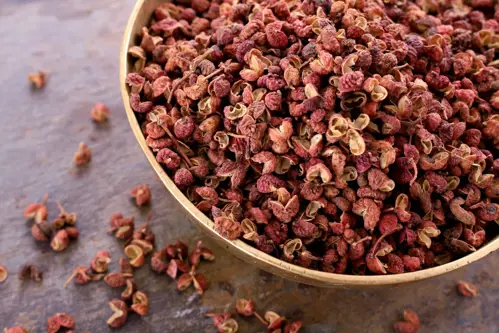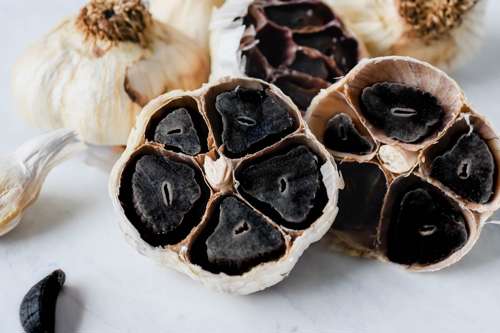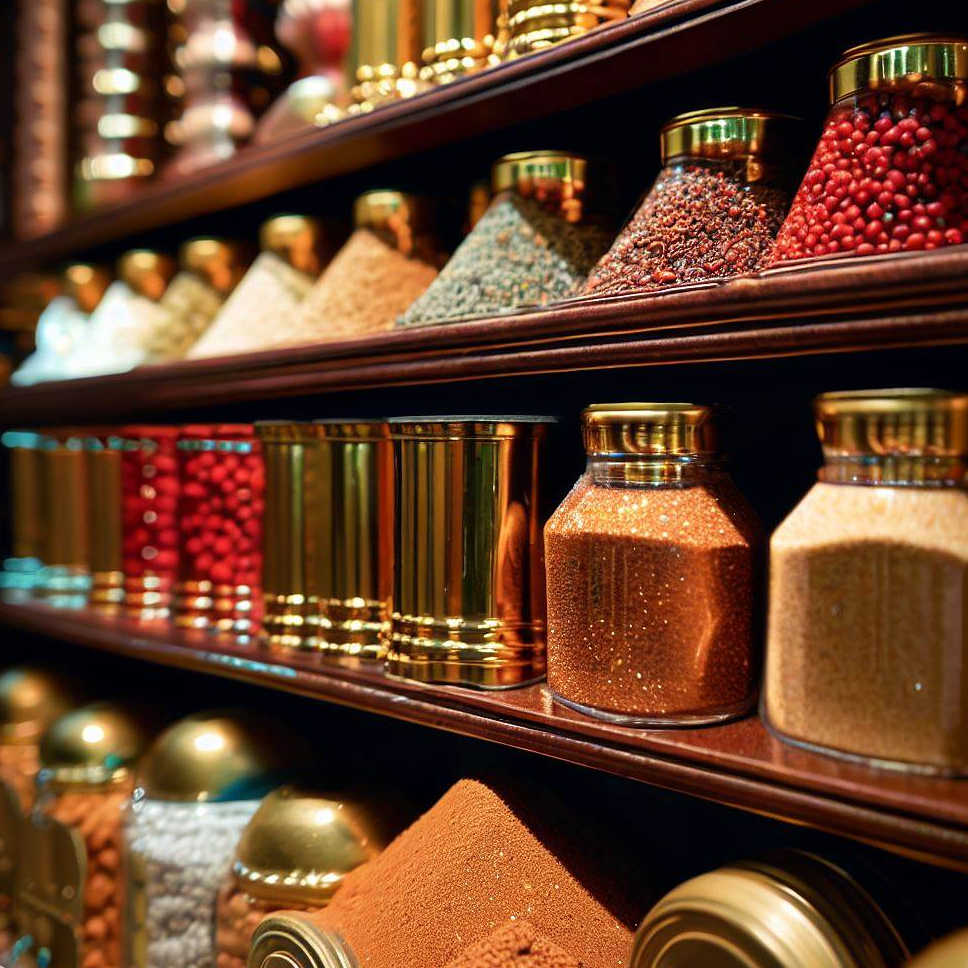Spices have played a vital role in human history, enhancing the flavors of dishes and captivating the senses with their aromatic profiles. While many spices are widely available and affordable, some varieties possess a remarkable combination of rarity, labor-intensive cultivation, and exquisite flavors, making them the crème de la crème of the spice world. In this blog, we will explore 20 of the world's costliest spices, delving into their unique characteristics, historical significance, and the reasons behind their premium price tags.
-
Saffron
Known as the "Red Gold," saffron is the most expensive spice in the world. It is derived from the delicate stigmas of the Crocus sativus flower. Each stigma must be hand-picked and carefully dried, resulting in a labor-intensive process. Saffron's distinct floral aroma and vibrant color make it a prized ingredient in many cuisines. Saffron is also popular by name "Kesar"

Saffron -
Vanilla
Derived from the pods of the Vanilla orchid, vanilla is renowned for its rich, sweet, and floral flavor. The high cost of vanilla is attributed to its complex cultivation and pollination process, requiring manual hand-pollination of each flower. Additionally, vanilla production is time-consuming, as the pods need to be fermented and dried to develop their signature taste.

Vanilla from Vanilla orchid -
Cardamom
With a unique blend of floral, citrusy, and spicy flavors, cardamom is often used in both sweet and savory dishes. It is obtained from the seeds of various plants in the Elettaria and Amomum genera. The intricate hand-harvesting process and the limited growing regions contribute to its high price.

Cardamom -
True Cinnamon
True cinnamon, also known as Ceylon cinnamon, is hailed for its delicate and mildly sweet flavor. Grown primarily in Sri Lanka, this spice comes from the bark of the Cinnamomum verum tree. The hand-rolled and sun-dried cinnamon quills require meticulous attention, adding to its exclusivity and price.

True Cinnamon -
Tasmanian Pepperberry
Native to Australia, the Tasmanian Pepperberry is highly sought after for its intense heat and fruity undertones. Its unique flavor profile and limited availability contribute to its high cost. The spice is derived from the dried berries of the Tasmanian Pepper tree.

Tasmanian Pepperberry -
Long Pepper
Long pepper is an ancient spice with a complex flavor profile reminiscent of black pepper with added sweetness and a hint of nutmeg. The elongated pepper cones require a longer growth period and are harvested at peak ripeness. This spice is primarily grown in Indonesia and India.

Long Pepper -
Grains of Paradise
Also known as Melegueta pepper, grains of paradise are native to West Africa. This spice offers a warm and peppery flavor with hints of citrus and cardamom. The labor-intensive harvesting process and its limited growing regions contribute to its high price.

Grains of Paradise -
Star Anise
Star anise is famous for its distinctive star-shaped appearance and strong licorice-like flavor. It is predominantly used in Chinese and Vietnamese cuisine. The spice is harvested from the fruit of the Illicium verum tree and requires careful drying to preserve its essential oils.

Star Anise -
Black Truffle
Renowned for its earthy aroma and exquisite taste, the black truffle is a highly prized culinary ingredient. Found primarily in France and Italy, these rare fungi grow underground in symbiosis with specific tree roots. The difficulty in locating and harvesting truffles, along with their limited shelf life, contributes to their astronomical price.

Black Truffle -
Morel Mushrooms
Morel mushrooms are known for their distinct honeycomb-like appearance and nutty, earthy flavor. These mushrooms are primarily found in

Morel Mushrooms forests and woodlands, making them challenging to cultivate. Their scarcity, coupled with the difficulty of harvesting and cleaning them, results in their high cost.
-
Pink Peppercorns
Pink peppercorns, despite their name, are not true peppercorns but rather dried berries from the Schinus molle tree. These delicate berries offer a mild, fruity, and slightly sweet flavor. The labor-intensive process of harvesting and separating the berries from their husks contributes to their elevated price.

Pink Peppercorns -
Dried Vanilla Beans
Dried vanilla beans are a gourmet delight, known for their intense aroma and flavor. These beans undergo a meticulous process of sun drying and curing after being harvested. The careful handling and time-consuming curing process make them more expensive than their extract counterparts.

Dried Vanilla Beans -
Juniper Berries
Juniper berries are commonly used to flavor gin and certain dishes, imparting a distinct piney and slightly citrusy taste. These berries require careful handpicking, as they have different stages of ripeness on the same plant. The limited growing regions and the need for manual harvesting contribute to their cost.

Juniper Berries -
Sichuan Pepper
Sichuan pepper is a key ingredient in Chinese cuisine, known for its unique numbing and citrusy flavor. The peppercorns are derived from the dried husks of the Zanthoxylum plant's berries. The labor-intensive process of separating the husks from the seeds and the limited growing regions make it a prized spice.

Sichuan Pepper -
Black Garlic
Black garlic is a fermented form of regular garlic, created through a slow and controlled aging process. The result is a sweet and savory flavor with hints of molasses and balsamic vinegar. The extended fermentation period and specialized curing conditions contribute to its higher cost.

Black Garlic -
Mace
Mace is a spice derived from the reddish aril that surrounds the nutmeg seed. It has a warm, aromatic, and slightly sweet flavor profile. The labor-intensive process of manually removing the aril from the nutmeg seed and its limited availability make it more expensive than nutmeg.

Mace -
Pink Sea Salt
Pink sea salt, such as Himalayan salt, gets its distinctive color from trace minerals present in the salt deposits. The salt is hand-mined from ancient sea salt beds and undergoes minimal processing, retaining its natural mineral content. Its unique color and perceived health benefits contribute to its higher cost.

Pink Sea Salt -
Smoked Paprika
Smoked paprika adds a rich, smoky flavor to dishes and is derived from dried and smoked red bell peppers. The peppers are traditionally smoked over oak wood fires, enhancing their taste and aroma. The time-consuming smoking process and the need for specific wood contribute to its premium price.

Smoked Paprika -
Fennel Pollen
Fennel pollen is a highly aromatic spice harvested from the flowers of the fennel plant. It possesses a sweet, floral, and licorice-like flavor. Collecting the pollen is a delicate and labor-intensive process, as the flowers need to be carefully handpicked at the right stage of maturity.

Fennel Pollen -
Wild Cumin
Wild cumin, also known as black cumin or kala jeera, is a spice that adds a distinctive and slightly bitter flavor to dishes. It is harvested from a wild variety of cumin seeds found in certain regions of India and Iran. The scarcity of this particular cumin species contributes to its higher price.

Wild Cumin
Conclusion, The world of spices offers a wide array of flavors and aromas, ranging from the commonly found to the extraordinarily rare and costly. The 20 spices discussed in this blog exemplify the finest and most exclusive varieties that command high prices due to factors such as labor-intensive cultivation, limited availability, and unique flavor profiles. Exploring these precious spices opens a doorway to the fascinating world of culinary
Discover More
Most Viewed
Christmas is a season of joy, love, and traditions. And what better way to get into the holiday spirit than through timeless carols? These musical gems have been bringing people together for generations. Here’s our ranked list of the Top 10 Christmas Caro…
Read More

















